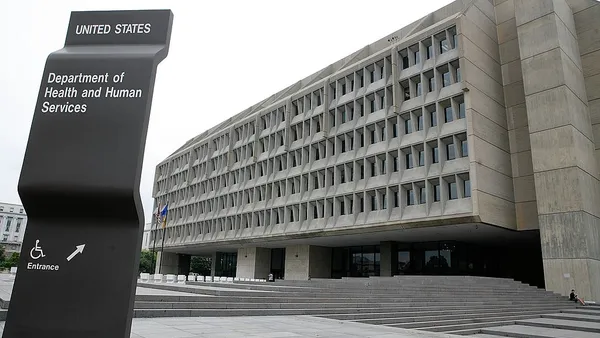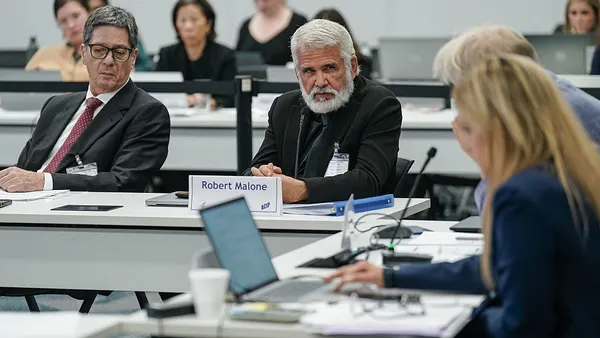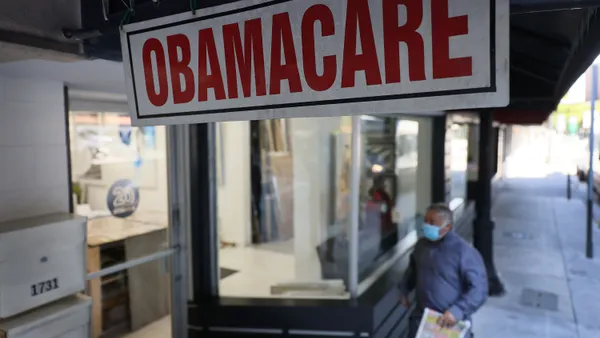Dive Brief:
- The Supreme Court will hear arguments Tuesday challenging a Colorado law that bans psychotherapists from performing “conversion therapy” on minors struggling with aspects of their gender identity or sexual orientation.
- Almost every major medical group — including the American Psychiatric Association, the American Psychological Association and the American Medical Association — has disavowed the practice, saying it’s ineffective and may even harm patients. Still, the plaintiffs in the case, conservative legal group Alliance Defending Freedom and Colorado therapist Kaley Chiles, want the ban overturned, saying therapists have a First Amendment right to free speech in sessions.
- The court has previously ruled that states can place limits on medical care if lawmakers believe the risks of a treatment outweigh benefits. In June, the court ruled Tennessee had the right to ban gender-affirming care for minors, particularly given state officials were not comfortable with the evidence supporting the practice.
Dive Insight:
Colorado’s Minor Conversion Therapy Law passed in 2019 prohibits all licensed health providers, except those engaged in the “practice of religious ministry,” from encouraging gay or lesbian minors to identify as heterosexual or transgender children to identify as the gender assigned to them at birth.
Colorado is one of more than 20 states nationwide that prohibits conversion therapy. The laws gained popularity after research found patients who underwent the treatments were more likely to suffer from depression and attempt suicide.
However, some conservative providers, including Chiles, say the ban limits their right to free speech. Chiles first sought to block the ban in court in 2019.
Lower courts were split as to whether the therapies represent speech, which would be protected under the First Amendment, or professional conduct that happened to involve speech, which would be considered under a different legal framework.
The Trump administration is backing Chiles’ challenge, filing an amicus brief to the Supreme Court that argues there are no harms to conversion therapy and that there are “dangers of relying on the consensus views of professional organizations to dictate what professionals may lawfully say.” The Trump administration has endorsed treatments similar to conversion therapy.
Meanwhile, Colorado argues it’s entitled to regulate licensed medical providers, including mental health professionals.
“For centuries, states have regulated professional healthcare to protect patients from substandard treatment. Throughout that time, the First Amendment has never barred states’ ability to prohibit substandard care, regardless of whether it is carried out through words,” attorneys for the state wrote in a filing to the court.
The court will hear oral arguments Tuesday and is set to decide the case this summer.
In briefs to the court, medical professionals said the case has significant stakes for medical care — including whether the state has the right to set any guardrails on counseling and if substandard care could be protected as free speech.
In a brief to the court, a group of faith-based mental health providers warned that adopting Chiles’ reasoning would “call into question whether any requirement governing mental health professionals ... could survive First Amendment scrutiny.”
The case also prompts questions about the court’s consistency. This summer, the court ruled that Tennessee had the right to ban gender-affirming care treatments for minors, in part because lawmakers thought the risks associated with treatment did not outweigh the benefits.
At the time, Justice John Roberts said the court would return the question of youth gender-affirming care to “the people, their elected representatives, and the democratic process.”













